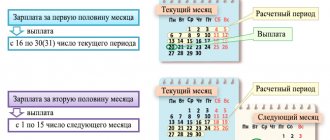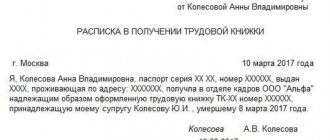Differences between the procedure for relocating an employee and transferring to another position
The transfer of a specialist involves a change in the labor functions he performs while continuing (without interruption) his work activity in the same place of employment (without changing the employer). The procedure, carried out by agreement of the participants in the labor process or on the initiative of the management of the enterprise, can be temporary or permanent. The temporary nature of the transfer is related to the period of absence of any specialist in the company or to the state of health of the worker himself.
What mistakes does an employer make when moving employees ?
Transfer to another job is possible with the written consent of the employee, except for some cases specified by law (Article 72 of the Labor Code of the Russian Federation). The transfer of a citizen to work for another employer is permitted at the employee’s written request (written consent) with the termination of the employment contract at the old place of employment (Article 77 of the Labor Code of the Russian Federation).
The movement of an employee is his movement within the organization, not accompanied by a change in job functions. The process is always carried out in the same area, and the essential terms of the employment agreement do not change.
The situation relates to internal issues resolved by the management of the enterprise and not requiring the consent of the employee (Articles 72, 73, 74 of the Labor Code of the Russian Federation). The employer must notify the specialist in advance about upcoming changes. He does not have the right to refuse to perform labor duties under changed conditions (in a new place, in a different structural unit).
Relocation, unlike permanent transfer of a worker, does not require registration in a work book. When transferring to an existing contract with an employee, an additional agreement is drawn up, which defines the essential conditions of the activity.
The transfer procedure may require the employee to have special skills; when moving an employee, there are no such requirements.
Important! Any movement must be justified for production reasons. Without them, movement in a number of situations may be considered illegal, especially if there are personal motives of the organization’s management.
What types of translations are there?
As can be seen from Art.
72.1 of the Labor Code of the Russian Federation, by transfer, Russian labor legislation means a permanent or temporary change in the labor functions of an employee and / or his structural unit, if specified in the employment contract, while continuing to work for the same employer, as well as transfer to work in another location together with the employer . Transfers are divided into permanent and temporary. The first option requires the employee to give written consent to the transfer. A temporary transfer can be carried out either by agreement of the parties or without the consent of the employee (Part 2 of Article 72.2 of the Labor Code of the Russian Federation).
There is another type of employee transfer - to another employer. In this case, a written request or written consent of the employee is required, and the transfer is carried out through termination of the employment contract, i.e. dismissal from the previous job. The employee receives compensation for unused vacation and work book.
Types of employee movement
The procedure provides several options for moving:
- To another workplace. The employee continues to perform his job duties without changes, but in another office or in another building of the organization.
- To another division of the company. Such structural units (management, branch, sector) cannot always be located at a single address, but must always be located within the same locality (city, town, village). In such cases, the procedure will be considered precisely the movement of the employee.
- To perform work on other equipment (unit, mechanism). For example, the driver continues to perform the previous functions of transporting (goods, passengers) in a new vehicle assigned to him. In this option, changing the tool of work should not contradict the employee’s responsibilities as defined by the employment agreement or job description.
Important! An employment contract may contain an indication of the workplace (unit) for the employee’s work. If the specified conditions change, the procedure is recognized as a transfer and not a rearrangement.
How to issue an order to transfer to remote work mode
This order, like any other in the organization, is drawn up on a form. The content of the order depends on how the remote transfer occurs. At the initiative of the employer based on the requirements of sanitary services or regional authorities or at the initiative of the employee based on his application.
In any case, in the first part of the order you must indicate the order number, date of preparation and name.
Order to work remotely at the initiative of the employer
In the main part of the order, in the justification, you need to indicate the reason for the transfer to remote work. Here you can refer to federal or regional legislation. For example, in Moscow you can refer to Mayoral Decree No. 2-UM dated January 18, 2022.
In the main part of the order you need:
- Post a list of employees who are being transferred to remote work.
- Specify the period of remote work.
- Appoint someone responsible for monitoring the execution of the order.
There are signatures at the bottom and part of the order.
All employees must be familiarized with the order. To do this, you can: either place a table at the bottom of the order itself for the full names and signatures of employees on familiarization, or create a separate sheet for familiarization with the order.
Employees can be familiarized with the order remotely. A scan of the order can be sent by email or posted on a corporate disk.
To transfer to remote work temporarily and in emergency situations, the employee’s consent is not required. In all other cases, you need to obtain either consent or a statement from the employee. It’s easier to ask for a statement.
Sample Order for the temporary transfer of part of the staff to remote work
Order on temporary transfer to remote work
“____”_____________20__ No. _________In connection with the Mayor’s Decree No. 12-UM dated “____”___________20__ on the introduction of a high alert regime in Moscow, I order:
1. For the period of antiviral measures - from “____”_____________20__
and until the high alert mode is lifted, transfer to remote work from home:
— position Last name First name Patronymic of the employee;
— position Last name First name Patronymic of the employee;
2. Full name of the employee to ensure the technical possibility of remote work for the employees specified in paragraph 1 of this order from 03/23/2020.
3. An accountant should calculate working hours during remote work as if working on a regular schedule.
order to transfer several employees to remote work
Order to work remotely at the initiative of the employee
Such an order is drawn up based on the employee’s application.
In justifying the transfer, you must indicate the reason for the remote work arrangement - a statement from the employee.
The main part of the order states:
- Full name and position of the employee who applied;
- request for transfer to remote work mode and justification;
- nature of the transfer: temporary or permanent;
- period of application of the labor activity regime;
There are signatures at the bottom and part of the order.
Download the order form for the transfer of one employee to remote work upon application
Sample Order for temporary transfer to remote work based on an employee’s application
ORDER on transfer to remote work
"____"_____________ 2022
In accordance with the agreement reached
I ORDER:
1. Transfer the manager of the sales department _____________ to remote work from “____” _______ 20__.
2. Retain for ___________________________ the obligation to perform her job functions in full, in the same position and with the same salary.
Reasons:
1. Application _______________ from “___”______________20__ for transfer to remote work from “___”_________________20__.
2. Additional agreement dated “___”______20__ No.____ to the employment contract dated “___”______________20__ No.________.
Conditions for movement
The company's management can rearrange (relocate) employees during the work process without changing job responsibilities, working conditions, or area of employment for reasons depending on the production interests of the enterprise and carried out without taking into account the interests of specialists.
Reasons for the procedure may be:
- production necessity, which results in adjustments to the company’s staffing schedule;
- reduction or expansion of the enterprise’s production activities;
- situations of professional and career growth of personnel.
In such situations, the moving employee must follow the orders of the employer or his representatives performing administrative functions at the enterprise.
Important! An employee cannot be transferred to another place of work that is contraindicated for him for reasons related to health. But if the employer did not receive notification of the presence of contraindications, and the employee himself hid such information, then in the future this circumstance may be regarded as an abuse of his right by the worker.
Registration of temporary transfer
So, if an employer wants to replace a temporarily absent employee and transfer another to his place, he sends the latter a proposal for a temporary transfer. The offer can also be made orally, since there are no special requirements for it. And if the employee agrees, an agreement to the employment contract is drawn up in writing in two copies.
If the transfer deadline is known in advance, it must be indicated in the agreement. However, if an employee is transferred to replace a temporarily absent employee, it is better to define the period as “until N returns to work.” When concluding a transfer agreement, fix in it the basis for the transfer, its duration, the employee’s new responsibilities, as well as other conditions that differ from those established by the employment contract.
Here is a sample of such an agreement.
| Additional Agreement No. 2 to the employment contract dated May 23, 2015 No. 23/05-td Yaroslavl May 13, 2022 Municipal budgetary institution "Department of Improvement" (MBU "Department of Improvement"), hereinafter referred to as the "Employer", represented by the director Viktor Ivanovich Kolesnikov, acting on the basis of the Charter, on the one hand, and Marina Vladimirovna Kopeikina, hereinafter referred to as the "Employee", on the other hand, collectively referred to as the “Parties”, have entered into this additional agreement to the employment contract dated May 23, 2015 No. 23/05-td as follows: 1. Due to the temporary absence due to temporary disability of the chief accountant, the Employee, with his consent, from the position of “accountant” is temporarily transferred to the position of “chief accountant”. 2. Transfer period: from May 14, 2022 until L.V. Babkina returns to work. 3. During the specified period, the Employee performs work in accordance with the job description for the above position. 4. For the period of temporary transfer, the employee is set the official salary provided for in the staffing table for the position of chief accountant in the amount of 70,000 rubles. per month, as well as bonuses, additional payments and bonuses provided for in the Regulations on remuneration and bonuses. 5. In all other respects that are not provided for in this additional agreement, the terms of the employment contract remain in effect. 6. This additional agreement is drawn up in two copies, one for each Party, and comes into force from the moment of signing. EMPLOYER: EMPLOYEE: Director Kolesnikov/V. I. Kolesnikov/Kopeikina/M. V. Kopeikina/ 13.05.2019 13.05.2019 A copy of the additional agreement has been received. 05/13/2019, Kopeikina |
Based on the agreement, a transfer order is drawn up in the unified form T-5 (approved by Resolution of the State Statistics Committee of the Russian Federation dated January 5, 2004 No. 1 “On approval of unified forms of primary accounting documentation for labor accounting and payment”). In the line “Type of transfer” it is necessary to indicate that the transfer is temporary, and the employee must be familiarized with the order against signature.
Then you should make an entry about the transfer in section. III personal card “Hiring and transfers to another job” (f. T-2).
But an entry about a temporary transfer is not made in the work book (part 4 of article 66 of the Labor Code of the Russian Federation and clause 4 of the Rules for maintaining and storing work books [1]).
If an employee is transferred to another job or position, he must be familiarized with the job description and other local regulations relevant to the performance of work for this position, and, possibly, undergo safety training and conclude a liability agreement.
Keep in mind that if, at the end of the transfer period, the employee’s previous job is not provided, and he did not demand its provision and continues to work, then the condition of the agreement on the temporary nature of the transfer loses force and the transfer is considered permanent (Article 72.2 of the Labor Code of the Russian Federation).
How to formalize this if the deadline for the transfer was unknown is not explained in the Labor Code. We think that first the employees can be notified that the main employee is returning to his place, and the temporary one is given his position, and then an order can be issued. You can immediately issue an order to terminate the performance of duties in a temporary position and return to the performance of duties in the main position, which the employee should also be familiarized with and signed. This order is drawn up in any form (see sample).
| Municipal budgetary institution "Department of Improvement" (MBU "Department of Improvement") Order No. 25 about the expiration of the temporary transfer period Yaroslavl 06/13/2019 Due to the end of the transfer period I ORDER: 1. M. V. Kopeikina, who previously temporarily held the position of chief accountant on the basis of additional agreement No. 2 dated May 13, 2019, will begin performing her main duties as an accountant from June 14, 2019. 2. To accrue M. V. Kopeikina’s salary in the position of accountant from June 14, 2019 in accordance with the staffing table. Director Kolesnikov /V. I. Kolesnikov/ I have read the order. Kopeikina, 06/13/2019 |
Procedure for registering employee relocation
Important! The employee relocation notification form from ConsultantPlus is available here
The management of the enterprise has the right to move an employee to another structural unit for production or other reasons, including medical indications. In this case, the conditions for the location of the new place of work in the previous area and the absence of significant changes in the labor function (job responsibilities) must be met:
- To reshuffle a specialist, the head of the enterprise issues an appropriate order, which defines a new job or structural unit for the employee to perform job duties.
- The basis for preparing the order is a report (official) note drawn up by the head of the department or structural unit where the specialist works.
- The document is submitted for consideration to the management of the organization, who affixes a conciliatory resolution, the corresponding date and signature.
If the initiative to move to a new place of work comes from an employee, the latter draws up a written application. The text of the document must contain a request to move the applicant to another unit or to another position, indicating the reasons that necessitated such a procedure. The application must be accompanied by supporting documents or medical reports if there are medical indications for moving the worker.
The application is brought to the attention of the management of the enterprise, which, if agreed, issues an authorization visa, which serves as the basis for preparing the appropriate order for the organization.
The text of the order states:
- position held and name of the department or unit where the applicant works;
- grounds for reshuffle;
- name of the unit or position (according to the staffing table) to which the specialist is transferred.
The specialist must familiarize himself with the prepared order and submit his visa for familiarization.
Important! An additional agreement is not drawn up to the employment agreement with the employee, since there is no change in his main job function. An entry about the employee’s movement is not made in the work book (Article 72 of the Labor Code of the Russian Federation).
Article 72.2 of the Labor Code of the Russian Federation. Temporary transfer to another job (current version)
1. Article 72.2 is specifically devoted to temporary transfer to another job. It provides for the possibility of temporary transfer to another job by agreement of the parties (Part 1) and at the initiative of the employer without the consent of the employee in cases provided for by law (Parts 2, 3).
2. In accordance with Part 1 of the commented article, by agreement of the parties, concluded in writing, an employee may be temporarily transferred to another job with the same employer. The law does not name specific grounds on which such a transfer is allowed, and therefore it is possible for any reason, incl. both for a vacant position (place of work) with a given employer, and to replace a temporarily absent employee within the period established by law. As a general rule, this period should not exceed one year. An exception is established for cases of transfer to another job to replace a temporarily absent employee, who, in accordance with the law, retains his place of work. In this case, the transfer period may be more than one year. It depends on the time the replaced employee returns to work.
However, within the one-year period established by law, the parties must determine a specific period during which the employee will perform work not stipulated at the conclusion of the employment contract.
It should be noted that in practice this rule is not always observed. There are often cases when the following entry is made in an order for transfer to another job: “transfer to a position ... for a period of up to one year.” This practice cannot be considered legal, because it does not comply with Part 1 of Art. 72.2, which directly states the end of the transfer period. Moreover, it places the employee in a very uncertain position for a long period.
Upon expiration of the period of temporary transfer to another job determined by the parties, the employer may, and at the request of the employee is obliged to provide him with the previous job. However, if the temporary transfer period has expired, and the employee does not insist on providing the previous job and continues to work, then the condition on the temporary nature of the transfer loses force. In this case, work in the position (profession, specialty) to which the employee was temporarily transferred is considered permanent for him and the employer does not have the right to transfer him to his previous or another job without the employee’s consent.
3. A temporary transfer to another job to replace an absent employee should be distinguished from the performance by an employee, on behalf of the employer, of the duties of a temporarily absent employee, along with work stipulated by an employment contract. If a temporary transfer to another job is allowed both for a vacant position (place of work) and to replace a temporarily absent employee whose position (place of work) is retained, then the employee’s performance of the duties of a temporarily absent employee without release from his main duties is allowed only for replacement an employee whose position (place of work) is retained (for example, during a business trip, vacation, temporary disability). The performance by an employee, on behalf of the employer, of the duties of a temporarily absent employee, along with the work stipulated by the employment contract, in contrast to a temporary transfer to another job, is not limited by any period. This period is determined by agreement of the parties. An agreement between the parties on a temporary transfer to another job cannot be terminated early unilaterally by the employee or the employer, as is the case when the employee, along with his work, performs the duties of a temporarily absent employee (see commentary to Article 60.2). However, this does not exclude the employee’s right to terminate the employment contract with the employer at his own request in accordance with the rules established by Art. 80 TK (see commentary to it).
4. Part 2 of the commented article provides the grounds on which the employer has the right to temporarily transfer an employee to another job not stipulated by the employment contract, without his consent. The law does not establish an exhaustive list of such grounds, but clearly defines their nature: these are exceptional cases that threaten the life or normal living conditions of the entire population or part of it. These include, in particular, natural or man-made disasters, industrial accidents, accidents, floods, and earthquakes.
Only in the presence of the specified emergency circumstances is it possible to temporarily transfer an employee without his consent to another job and in case of downtime, which is understood as a temporary suspension of work for reasons of an economic, technological, technical or organizational nature, as well as if it is necessary to prevent destruction or damage to property or to replacing an absent employee (Part 3 of Article 72.2). In other words, a temporary transfer of an employee without his consent to a job not stipulated by an employment contract can be considered justified only if it is necessary due to emergency circumstances that threaten the life or normal living conditions of the entire population or part of it. If the need for a temporary transfer of an employee to another job is caused, for example, by reasons such as equipment breakdown, untimely delivery of raw materials, and this is not caused by emergency circumstances provided for in Part 2 of the commented article, then such a transfer is allowed only by agreement of the parties.
At the same time, as explained in the Resolution of the Plenum of the Armed Forces of the Russian Federation dated March 17, 2004 N 2, when applying Parts 2 and 3 of Art. 72.2 of the Labor Code, which allows the temporary transfer of an employee to another job without his consent, courts should keep in mind that the obligation to prove the existence of circumstances with which the law connects the possibility of such a transfer rests with the employer (clause 17).
5. The duration of one (each) transfer to another job without the employee’s consent in cases where such a transfer is necessary due to emergency circumstances threatening the life or normal living conditions of the population should not exceed one month. However, such a translation may be repeated. This rule also applies to cases of temporary transfer to another job to replace an absent employee, i.e. transfer to another job to replace an absent employee due to emergency circumstances is not limited to one month during the calendar year.
The job to which the employee is transferred due to the above circumstances (including to replace a temporarily absent employee) must correspond to his qualifications. If in this situation a transfer to another job requiring lower qualifications is necessary, then such a transfer is permitted only with the written consent of the employee.
6. Temporary transfer of an employee to another job in all cases provided for in Art. 72.2, is allowed only with the same employer with whom he has an employment relationship. Moreover, when transferring an employee to another job without his consent, i.e. in cases provided for in Parts 2 and 3 of Art. 72.2, wages must be paid according to the work performed, but not lower than the average earnings for the previous job.
In all cases, transfer to another job that is contraindicated for the employee for health reasons is unacceptable.
7. Article 72.2 gives the employer the unconditional right to transfer employees without their consent to work not stipulated by the employment contract in exceptional cases that threaten the life or normal living conditions of the population. In this regard, the employee cannot refuse such a transfer if it is carried out in accordance with established requirements and the employee does not have valid reasons for refusing the transfer.
Refusal to perform work during a transfer carried out in compliance with the law is recognized as a violation of labor discipline, and absence from work is considered absenteeism.
However, it should be taken into account that by virtue of para. 5 tbsp. 219, part 7 art. 220 of the Labor Code, an employee cannot be subject to disciplinary action for refusing to perform work in the event of a danger to his life and health due to violation of labor protection requirements, except in cases provided for by federal laws, until such danger is eliminated or from performing heavy work and work with hazardous and (or) dangerous working conditions not provided for in the employment contract. Since the Labor Code does not contain rules prohibiting an employee from exercising this right even when the performance of such work is caused by a transfer due to emergency circumstances, the employee’s refusal to temporarily transfer to another job in accordance with Art. 72.2 for the above reasons is justified (see paragraph 19 of the Resolution of the Plenum of the Armed Forces of the Russian Federation dated March 17, 2004 No. 2).
Comment source:
Rep. ed. Yu.P. Orlovsky “COMMENTARY ON THE LABOR CODE OF THE RUSSIAN FEDERATION”, 6th edition ACTUALIZATION
ORLOVSKY Y.P., CHIKANOVA L.A., NURTDINOVA A.F., KORSHUNOVA T.YU., SEREGINA L.V., GAVRILINA A.K., BOCHARNIKOVA M.A., VINOGRADOVA Z.D., 2014
Temporary transfer for medical reasons
As we found out, a temporary transfer is carried out with or without the employee’s consent. However, according to Art. 73 of the Labor Code of the Russian Federation, the employer is obliged to transfer an employee to another job (position) if he needs it in accordance with a medical report.
Moreover, other work should not be contraindicated for the employee due to health reasons. For your information
A medical report is issued in the manner established by Order of the Ministry of Health and Social Development of the Russian Federation dated May 2, 2012 No. 441 “On approval of the Procedure for issuing certificates and medical reports by medical organizations . A certificate of temporary incapacity for work is not considered a medical report.
When receiving a medical report from an employee, first of all you need to pay attention to the transfer period indicated in the certificate, since the employer’s further actions depend on this.
If an employee is indicated for a temporary transfer to another job for a period of up to four months, the employer must offer him another job that is suitable for health reasons. In the absence of such or the employee’s refusal, the employer is obliged to suspend him from work while maintaining his place of work (position) for the entire period specified in the medical report. To do this, the employer issues an order in any form. The order should indicate the period for which the employee is suspended; if the period is still not specified, upon admission to work, an order should be issued on the employee’s admission.
If, in accordance with a medical report, an employee needs a temporary transfer to another job for a period of more than four months or a permanent transfer, then if he refuses the transfer or the employer does not have the corresponding work, the employment contract is terminated under clause 8 of Part 1 of Art. 77 of the Labor Code of the Russian Federation - the employee’s refusal to transfer to another job, which is necessary for him in accordance with a medical certificate issued in the manner established by federal laws and other regulatory legal acts of the Russian Federation, or the employer does not have the corresponding job. Upon dismissal on this basis, the employee is paid severance pay in the amount of two weeks' average earnings ( Part 3 of Article 178 of the Labor Code of the Russian Federation ).
For your information
According to Art. 254 of the Labor Code of the Russian Federation, pregnant women, in accordance with a medical report and at their request, are transferred to another job that excludes the impact of adverse production factors, while maintaining the average earnings for their previous job. Before being given another job, a pregnant woman is subject to release from work with the preservation of average earnings for all working days missed as a result at the expense of the employer. A similar guarantee is provided for women with children under the age of one and a half years.







